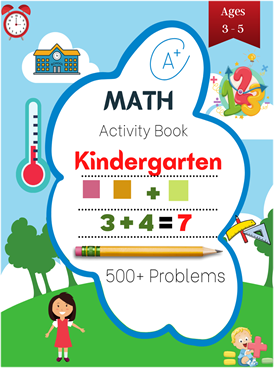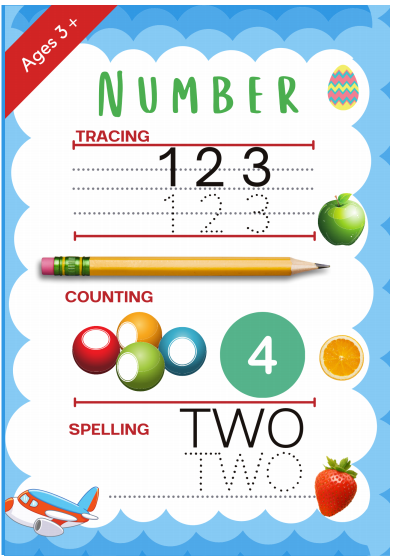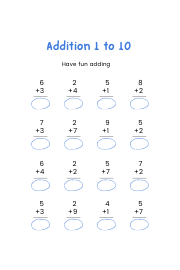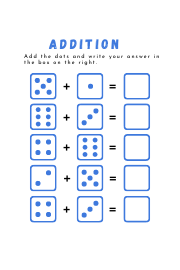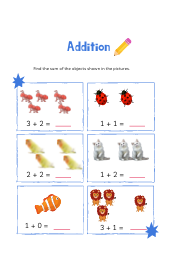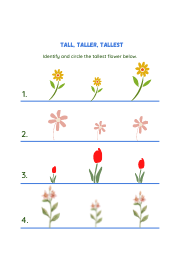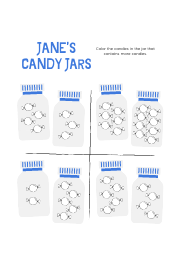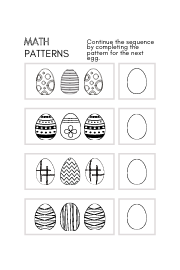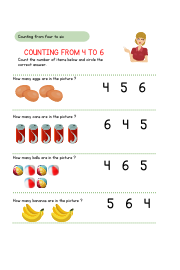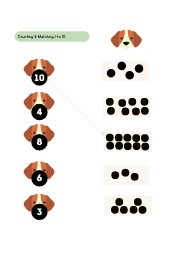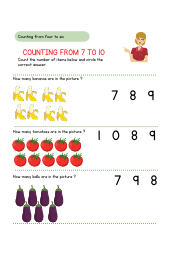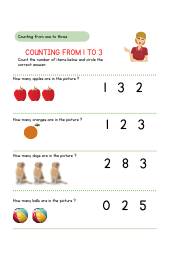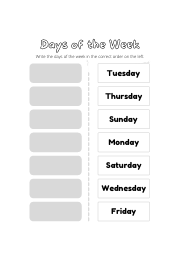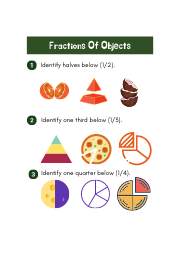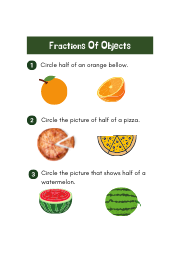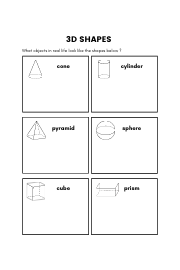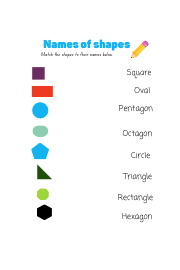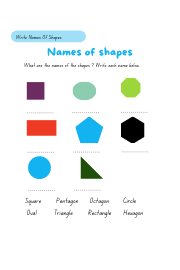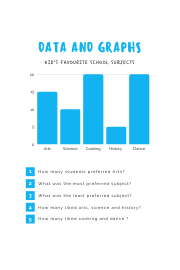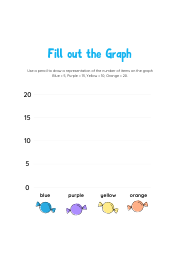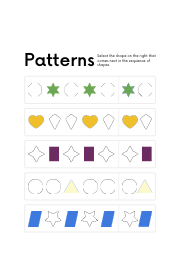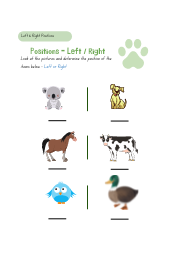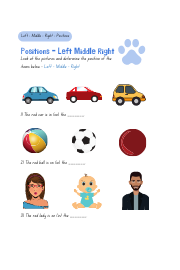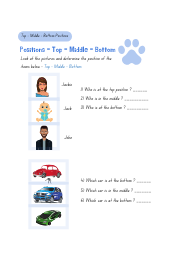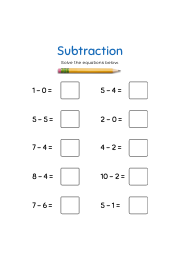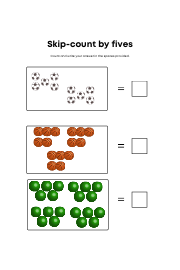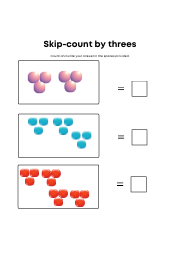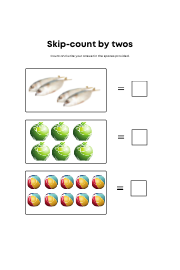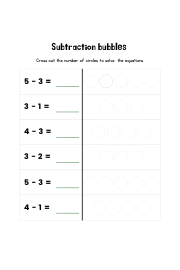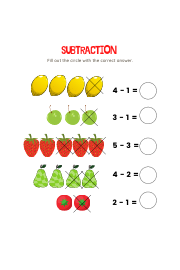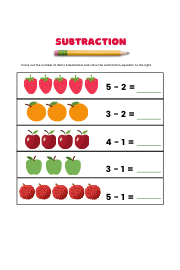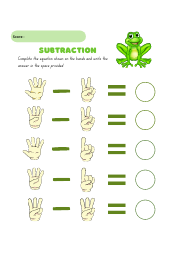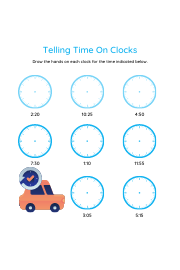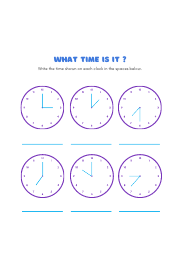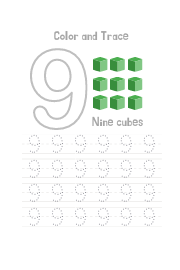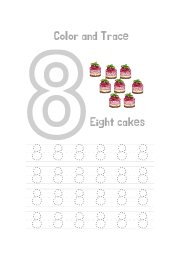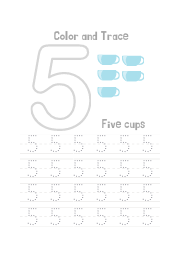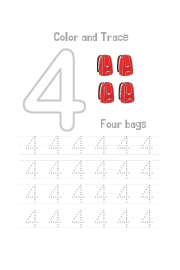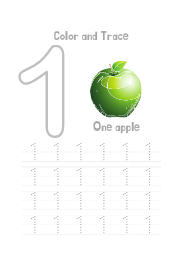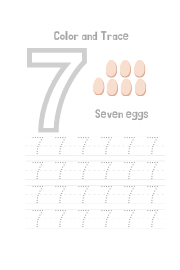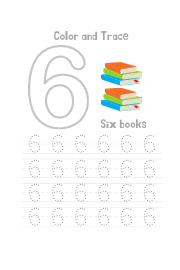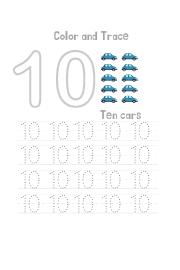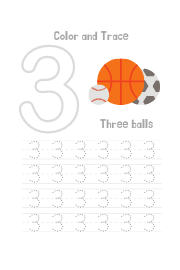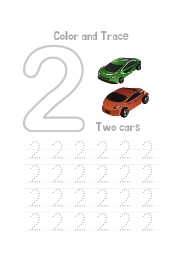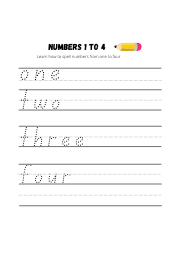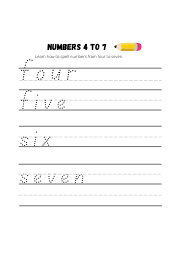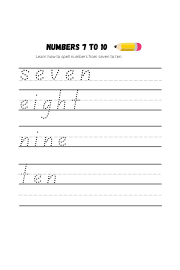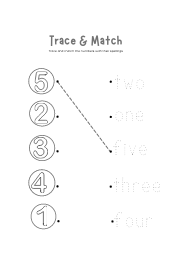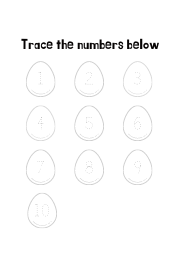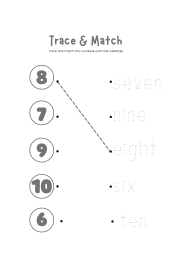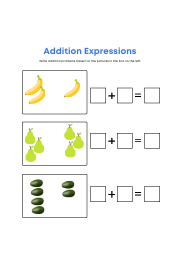Math Worksheet for Nursery: Enhancing Early Math Skills in a Fun Way
Early childhood education plays a crucial role in shaping a child's overall development, and math education is no exception. Introducing math concepts to nursery kids at an early age can lay a solid foundation for their future academic success. One effective tool that helps in building these skills are math worksheets designed specifically for nursery kids. In this article, we will explore the importance of math worksheets for nursery kids and provide insights on how to use them effectively. Check out our cursive writing free pack here >>
Importance of Math in Early Childhood Education
Mathematics is not just about numbers and calculations; it is a fundamental skill that develops logical thinking, problem-solving abilities, and critical reasoning. Early math experiences can have a lasting impact on a child's learning trajectory, making it crucial to introduce math concepts during the nursery stage itself. By providing nursery kids with engaging math worksheets, parents and educators can create a strong foundation for future mathematical understanding.
Benefits of Math Worksheets for Nursery Kids
Development of Number Sense
Math worksheets help nursery kids develop number sense, which is the ability to understand the quantity and relationships between numbers. Through carefully designed activities, worksheets encourage counting, comparing numbers, and recognizing patterns, thus fostering a deep understanding of numerical concepts.
Enhancing Cognitive Skills
Engaging with math worksheets stimulates various cognitive skills in nursery kids. By solving problems, children learn to think critically, analyze information, and make logical connections. These cognitive abilities, developed through math worksheets, are transferable and can be applied to various aspects of life beyond mathematics.
Improving Fine Motor Skills
Math worksheets often involve activities that require precise hand movements, such as tracing, coloring, and drawing. These activities improve fine motor skills, hand-eye coordination, and grip strength in nursery kids, contributing to their overall physical development.
Introducing Basic Mathematical Concepts
Through carefully designed math worksheets, nursery kids are introduced to fundamental mathematical concepts in an accessible and enjoyable manner. Worksheets can cover concepts like shapes, sizes, colors, patterns, and basic operations, laying the groundwork for future math learning.
Choosing the Right Math Worksheets for Nursery Kids
Selecting appropriate math worksheets for nursery kids is crucial to ensure effective learning and engagement. Here are some factors to consider when choosing the right worksheets:
Age-Appropriate Worksheets
Math worksheets should align with the developmental stage of nursery kids. They should be designed to suit their cognitive abilities, motor skills, and attention span, presenting challenges that are neither too easy nor too difficult for them.
Fun and Engaging Activities
To maintain the interest and motivation of nursery kids, math worksheets should incorporate interactive and enjoyable activities. Colorful illustrations, games, puzzles, and stickers can make the learning process engaging and exciting.
Visual Representations
Nursery kids often understand concepts better through visual representations. Worksheets with visual aids, such as pictures, diagrams, or objects, can help them grasp mathematical ideas more effectively and connect them to the real world.
Progressive Difficulty
Math worksheets should be designed in a progressive manner, gradually increasing in complexity. This allows nursery kids to build on their existing knowledge and skills, fostering a sense of achievement as they successfully tackle more challenging problems.
How to Use Math Worksheets Effectively
Merely providing math worksheets to nursery kids is not sufficient; using them effectively is equally important. Here are some strategies to maximize the benefits of math worksheets:
Create a Structured Routine
Establish a structured routine for math worksheet sessions. Consistency and regularity help nursery kids develop a positive attitude towards math and create a sense of expectation, making them more receptive to learning.
Encourage Independent Exploration
While providing guidance is essential, it is equally important to encourage nursery kids to explore and solve problems independently. This fosters problem-solving skills, critical thinking, and self-confidence.
Provide Guidance and Support
Be actively involved in your child's math learning journey. Offer guidance, support, and explanations when needed. Break down complex problems into smaller, more manageable steps, ensuring your child understands the underlying concepts.
Incorporate Real-Life Situations
Relate math concepts to real-life situations and contexts. Connect mathematical ideas to everyday experiences, such as counting toys, sorting objects, or sharing snacks. This makes math more relevant and meaningful for nursery kids.
Additional Tips for Using Math Worksheets
Here are some additional tips to enhance the effectiveness of math worksheets for nursery kids:
Use Manipulatives and Counting Objects
Introduce hands-on materials like blocks, beads, or counting objects alongside worksheets. These manipulatives provide a tangible representation of mathematical concepts and help nursery kids visualize and comprehend abstract ideas.
Offer Positive Reinforcement
Celebrate small achievements and progress to boost nursery kids' confidence and motivation. Praise their efforts, use rewards or incentives, and create a positive learning environment that fosters a love for math.
Create a Positive Learning Environment
Designate a dedicated workspace for math worksheet activities. Ensure it is well-lit, comfortable, and free from distractions. Create an atmosphere that encourages focus, curiosity, and exploration.
Overcoming Challenges with Math Worksheets
While math worksheets can be highly beneficial, some challenges may arise. Here are a few ways to overcome them:
Tailoring Worksheets to Individual Needs
Every child has unique learning needs and preferences. Adapt math worksheets to cater to individual strengths and weaknesses. Personalize activities, adjust difficulty levels, and provide extra support when necessary.
Addressing Frustration and Lack of Interest
Nursery kids may occasionally face frustration or lose interest while working on math worksheets. Stay patient and supportive, use positive reinforcement, and introduce breaks or alternate activities to maintain engagement.
Making Learning Fun and Interactive
Infuse creativity and interactivity into math worksheet sessions. Incorporate games, songs, movement, or technology-based resources to make the learning experience enjoyable and captivating.
Conclusion
Math worksheets designed for nursery kids serve as valuable tools in introducing early mathematical concepts in an engaging and effective manner. By incorporating age-appropriate worksheets, following effective strategies, and creating a positive learning environment, parents and educators can nurture a love for math and set the stage for future mathematical success.
FAQs
1. What age group is suitable for nursery math worksheets?
Nursery math worksheets are typically designed for children between the ages of 3 and 5 years old, who are in the early stages of their education.
2. How can math worksheets enhance problem-solving skills?
Math worksheets require nursery kids to think critically, analyze information, and apply problem-solving strategies. By practicing these skills regularly, nursery kids develop their problem-solving abilities.
3. Are digital math worksheets effective for nursery kids?
Yes, digital math worksheets can be effective for nursery kids. They offer interactive features, visual aids, and immediate feedback, making learning engaging and enjoyable.
4. Can math worksheets be used as a standalone learning tool?
Math worksheets should be supplemented with other learning activities and experiences. They work best when combined with hands-on manipulatives, real-life applications, and supportive guidance from parents and educators.
5. How can parents actively engage in their child's math learning journey?
Parents can actively engage in their child's math learning journey by providing support, encouragement, and resources. They can participate in math activities, reinforce concepts through everyday situations, and communicate with teachers to understand their child's progress and needs.

